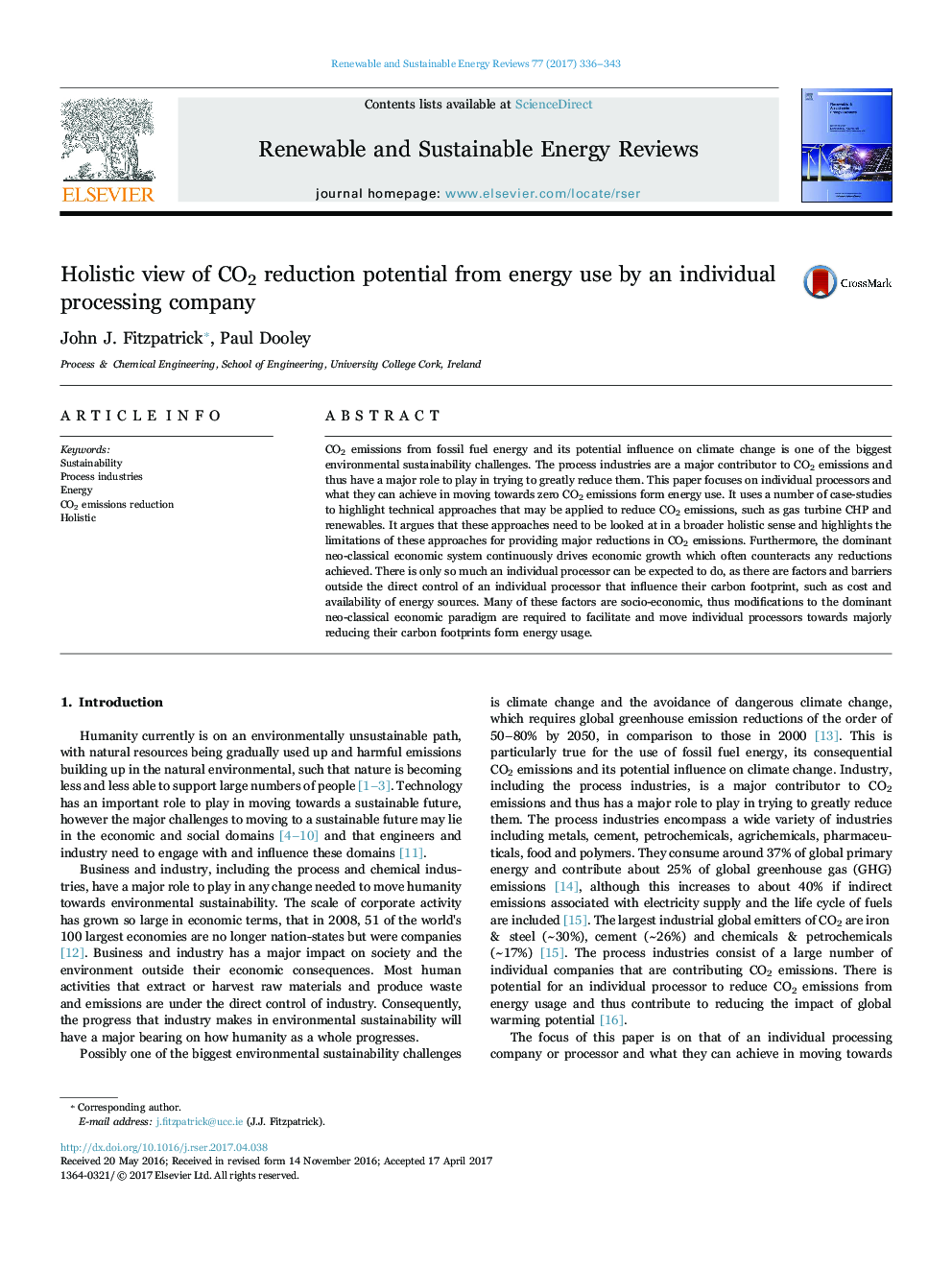| Article ID | Journal | Published Year | Pages | File Type |
|---|---|---|---|---|
| 5482943 | Renewable and Sustainable Energy Reviews | 2017 | 8 Pages |
Abstract
CO2 emissions from fossil fuel energy and its potential influence on climate change is one of the biggest environmental sustainability challenges. The process industries are a major contributor to CO2 emissions and thus have a major role to play in trying to greatly reduce them. This paper focuses on individual processors and what they can achieve in moving towards zero CO2 emissions form energy use. It uses a number of case-studies to highlight technical approaches that may be applied to reduce CO2 emissions, such as gas turbine CHP and renewables. It argues that these approaches need to be looked at in a broader holistic sense and highlights the limitations of these approaches for providing major reductions in CO2 emissions. Furthermore, the dominant neo-classical economic system continuously drives economic growth which often counteracts any reductions achieved. There is only so much an individual processor can be expected to do, as there are factors and barriers outside the direct control of an individual processor that influence their carbon footprint, such as cost and availability of energy sources. Many of these factors are socio-economic, thus modifications to the dominant neo-classical economic paradigm are required to facilitate and move individual processors towards majorly reducing their carbon footprints form energy usage.
Related Topics
Physical Sciences and Engineering
Energy
Renewable Energy, Sustainability and the Environment
Authors
John J. Fitzpatrick, Paul Dooley,
